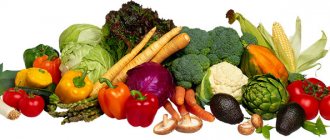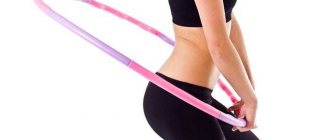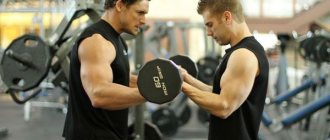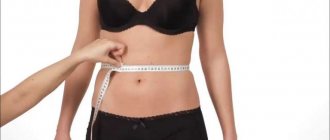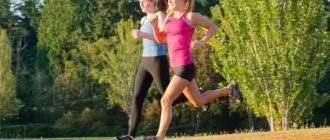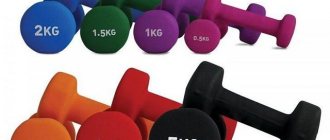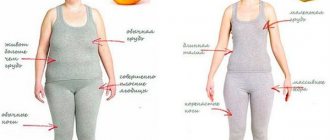What types of figures exist
Probably everyone has heard about the “apple” or “pear” figure.
These names describe the difference in the proportions of the female body and the distribution of adipose tissue. The Lifehacker Telegram channel contains only the best texts about technology, relationships, sports, cinema and much more. Subscribe!
Our Pinterest contains only the best texts about relationships, sports, cinema, health and much more. Subscribe!
This is not a scientific classification, but only conventions that are used to select suitable clothing. Therefore, body types do not have clearly established names, and their number varies depending on the source.
Illustration: VectorShow/Depositphotos
Here are five more or less general Female figure identification techniques (FFIT) for apparel categories to navigate:
- Pear (triangle, spoon, A-shape, Christmas tree). The lower part of the body is wider than the upper, fat primarily accumulates on the buttocks and hips, the chest and shoulders are narrow. Sometimes “spoon” and “pear” are described separately - in people of the second type, the transition from the waist to the hips is more pronounced.
- Inverted triangle (V‑shape). Shoulders are wider than hips, wide chest, fat accumulates in the upper body and stomach.
- Rectangle (H‑shape, banana). Shoulders and hips are the same width, there is no curved waistline.
- Hourglass (X‑shape, figure eight). Shoulders and hips are the same width, narrow waist. Sometimes the hourglass is divided into upper and lower: people from the first type have a chest girth greater than the hip girth, and those with the second type have the opposite.
- Apple (oval, O-shape, diamond). Shoulders and hips are narrow, slender legs. Most of the fat is concentrated in the chest and abdomen. Oval and diamond shapes are sometimes described separately in this category. The former have larger breasts than the latter.
What determines your body type and is it possible to change it?
There are several factors that affect your body shape:
- Skeletal structure . Your proportions are largely determined by the width of your pelvis and chest. There is nothing you can do about this factor other than undergoing lower rib resection for a thinner waist, but this procedure can lead to complications.
- Features of adipose tissue accumulation . Fat cells have Mechanisms underlying regional differences in lipolysis in human adipose tissue different types of receptors. Some promote the breakdown of fat, others - accumulation. The number of such receptors in different parts of the body determines where you will gain fat first and lose fat last.
- Body fat percentage . This factor is partly dependent on genetics, for example on the characteristics of Beta‑3‑adrenergic Receptor rs4994 Polymorphism Is a Potential Biomarker for the Development of Nonalcoholic Fatty Liver Disease in Overweight/Obese Individuals beta‑3‑adrenergic receptors in adipose tissue or the Appetite is a heritable phenotype associated with adiposity to food stimuli. At the same time, environmental factors also matter. For example, excess calories in the diet, lack of sleep Sleep and obesity and stress Stress and Obesity: Are There More Susceptible Individuals? can increase the amount of fat in the abdominal area and turn the “rectangle” into an “apple”.
If you can’t do anything about genetics, then environmental factors can be corrected. You can lose extra pounds and visually adjust your shape a little. For example, make the hips appear more voluminous and the waist look narrower.
But don’t expect to change your body type and turn from an inverted triangle into a pear or an hourglass. Firstly, this is impossible, and secondly, it is absolutely unnecessary.
Your body can be beautiful and sexy regardless of the size of your breasts, waist, hips and their ratio.
If you love and accept yourself, but still want to change your figure - simply because it looks beautiful to you - we'll show you how to choose the right tools and avoid common misconceptions.
How workouts will help people with different body types
First, we'll list what different body types can do to get closer to the prescribed beauty standards, and then we'll look at exactly how to achieve this.
Apple
The main problem of this type is excess fat deposits on the abdomen. Training will help reduce your waist circumference and increase the volume of your hips and buttocks. You can also use exercises to strengthen the muscles of your chest, shoulders, and arms to visually expand your upper body.
Pear
Exercises will help you get rid of excess fat on your hips and buttocks, shrink your belly, and strengthen your arms and shoulders.
Triangle
With the help of training, you can increase the volume of your hips and buttocks, which will provide a more feminine silhouette. However, you should not exclude exercises on the upper body. As long as you don't get carried away with heavy presses, weighted pull-ups, and handstand push-ups, strengthening your chest, shoulders, and arms will ensure a toned appearance without making your top look bulky.
Rectangle
To increase the difference between your waist and hips, you can tone your leg and butt muscles. Strengthening the upper body - chest, back and shoulders - will also emphasize the waist and provide a harmoniously developed, sculpted body. The only thing is that you shouldn’t get carried away with exercises to pump up the oblique abdominal muscles. They can visually widen your waist.
Hourglass
Exercises will help you lose excess fat from your thighs, lift your chest slightly, and strengthen your arms and shoulders.
Top exercises for a thin waist
Vacuum
This exercise is best done on an empty stomach. Inhale deeply, then slowly exhale, drawing in your stomach, pressing the front wall of your abdomen towards your spine. Hold this state for about 10-15 seconds. Do 4-6 repetitions.
Heel touch
Lie on your back, bend your knees. Lift your shoulder blades off the floor and touch your heels with your arms extended along the floor. Do 20 reps of 3 sets.
Elbow plank
Place your elbows and toes on the floor. Stretch your body into one straight line, tightening your stomach and buttocks. Hold this position for as long as possible. After a short break, do 2 more approaches.
Straight crunches
Lie on your back, keep your hands behind your head and bend your knees. As you exhale, lift your shoulder blades off the floor by contracting the rectus abdominis muscle. Do 20 reps of 3 sets.
We recommend reading: Post-workout food for muscle growth
Reverse crunches
Lie on your back, lift your legs up and slightly bend your knees, place your arms parallel to your body. As you exhale, lift your pelvis off the floor and push your legs up. As you inhale, return to the starting position. Do 20 reps of 3 sets.
You can also borrow a few yoga asanas for a thin waist:
- Twists help maintain bowel function.
- Bow pose strengthens the core of the abdomen.
- Boat pose strengthens the abdominal, back and leg muscles.
How to exercise to improve your figure
Once you decide on your goals, choose the right methods to achieve them.
To remove fat from thighs
Many people think that doing endless squats and lunges will help burn the fat that accumulates in the lower body. It is a myth.
In one experiment, Regional fat changes induced by localized muscle endurance resistance training, people performed 960–1,200 repetitions of single leg presses three times a week for three months. They ended up losing 5.1% of their body fat, but they lost more from their upper body than their thighs. Moreover, the working leg lost weight no more than the one that was left without load.
To lose weight, you need long-term cardio sessions Aerobic exercise alone results in clinically significant weight loss for men and women: Midwest Exercise Trial‑2, Effects of aerobic and/or resistance training on body mass and fat mass in overweight or obese adults or high-intensity interval training ( HIIT) The effects of high‑intensity intermittent exercise training on fat loss and fasting insulin levels of young women - both types of exercise work well with extra pounds.
HIIT takes less time than long-term cardio: it lasts only 10-20 minutes, burns a lot of calories and revs up your metabolism. But at the same time, these complexes feel less comfortable. During the work you will have to give your all in short intervals of time, out of breath and feel a burning sensation in your muscles.
It's best to try both cardio and HIIT and see what works for you. In addition, you can combine these types of load.
Do 2-4 cardio sessions per week for 30-60 minutes. You can replace one or two of them with high-intensity interval sets for 10-20 minutes.
If you're overweight, choose low-impact cardio to avoid putting stress on your knees and feet. Try an elliptical or exercise bike, swimming, or jumping rope.
Choose your type of cardio
